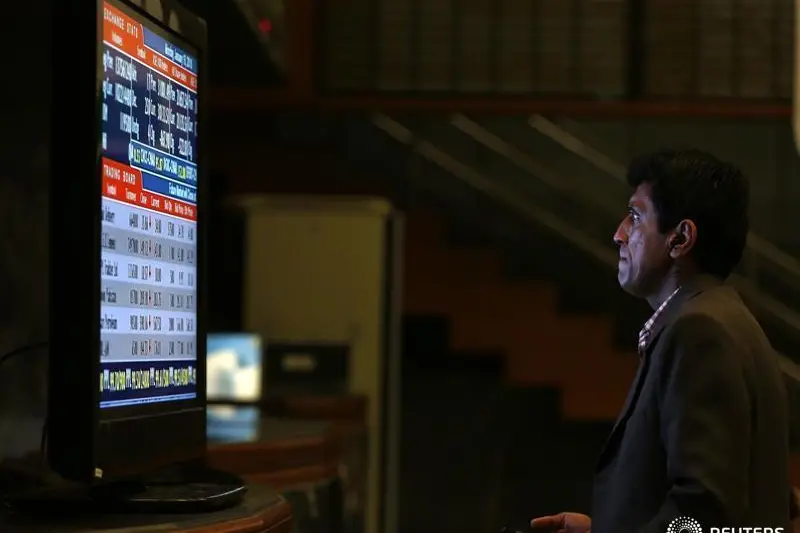PHOTO
Destined to become the fourth fastest growing economy by 2030, Pakistan, supported by a growing population, fast growing business and increasing penetration of Internet, is poised to grab first position among the digital economies, Information Technology (IT) experts say.
US technology giant, Google, says Pakistan is quickly becoming a “digital-first country”, which means there are new opportunities for brands to reach and engage with consumers that may have previously been overlooked.
“It shows that Google has realized the marketing potential of the country and they are now encouraging businesses to focus on Pakistan as a potential market,” Badar Khushnood, vice president of growth at Fishry.Com commented.
According to Google, there are five reasons for “considering expanding your digital campaigns into Pakistan”.
Pakistan’s growing population is the first reason that makes the country attractive for the foreign and local investors to venture into the IT sector.
“Pakistan has a population of more than 202 million people, which means there are lot of potential consumers coming online every day. And the country is even more urbanized than neighboring India, with nearly 40 percent of total households living in cities,” writes Lars Anthonizen, head of large customer marketing, South Asia, Google.
Pakistan’s economy grew by 5.7 percent in fiscal year 2018. HSBC in is recent report published in September 2018 has projected Pakistan to become the fourth fastest growing economy by 2030.
Around 90 percent of the companies in the country are SMEs which are contributing more that 40 percent to the country’s 313 billion economy, according to the State Bank of Pakistan.
Third attraction, according to Google, is the country’s growing smart phone users. Pakistan has 152 million cellar subscribers, and 60 million 3G/4G subscribers, according to Pakistan Telecommunication Authority (PTA).
This number will likely grow quickly as smart phone prices have dropped over the last few years. Pakistan also has some of the cheapest data prices in the world, which is helping to grow mobile app usage, according to Google.
However, experts say more work is needed to be done to fully utilize the existing potential. “We need to work on optic fibers, penetration of 4G, creation of data centers, telecom infrastructure and most importantly creation of awareness among masses,” Pervaiz Iftikhar, a member of the newly formed prime minister’s Taskforce on IT and Telecom, told Arab News.
Pakistan’s overall Internet penetration stands at 29.9 percent with 62 million broadband subscribers, a fourth attraction for the investor, as per Google. In spite of this, digital consumption in the country continues to grow quickly. YouTube watch time, for example, has seen over 60 percent growth over the last three years.
The Chinese-Pakistan Economic Corridor (CPEC) is the largest Chinese investment venture in Pakistan with around $62 billion, a fifth reason to look toward Pakistan.
The mega project under BRI is not only limited to the infrastructure and energy sector but it is also contributing to the growth of the IT sector in Pakistan.
“One of the first CPEC projects is to lay 820 kilometers of fiber-optic cable, connecting more Pakistanis to the Internet. This is in addition to ongoing investments in 3G and 4G network expansions from China Mobile, and the company has already announced plans to invest another $225 million in 4G expansion (bringing its total investment to $2.4 billion),” writes Lars Anthonizen.
“We have to connect every village through fiber optics that will not only create thousands of jobs but would multiply opportunities for the IT business countrywide,” Pervaiz Iftikhar added.
“A lot of potential exists in the IT sector of Pakistan with the young population turning to computers, smart phones and other digital means, and the country offers big market for local and foreign investors”, Jehan Ara, another member of the prime minister’s Taskforce on IT and Telecom commented.
Badar Khushnood, who is also former consultant of Google, Facebook and Twitter, called for comprehensive policy for the growth of the IT sector.
“Taxation systems should be rationalized, simplified, and encouraging for startups. The country also needs data protection laws, and broader cyber laws,” he added.
The first meeting of the prime minister’s Task Force on IT and Telecom is expected to be held next week in Islamabad. “Comprehensive strategy including short term and long term measures would be discussed in the upcoming meeting of taskforce because country needs a policy for the persistent growth of IT and Telecom sector”, Pervaiz Iftikhar informed.
Copyright: Arab News © 2018 All rights reserved. Provided by SyndiGate Media Inc. (Syndigate.info).





















